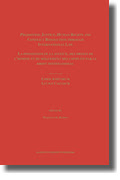Anne-Marie Slaughter (Princeton - Woodrow Wilson School) has published Earning It (ForeignPolicy.com, July 2007). Here it is:
My friend Theo Sommer, former editor in chief of Germany’s Die Zeit, always says, “Underneath every America-hater is a disappointed America-lover.” The latest Pew polls would appear to bear him out; many of the most negative attitudes toward the United States are in Europe, a continent of liberal democracies committed to the same values of liberty, democracy, equality, justice, and tolerance that the United States professes. And deep down, the virulent antipathy to America in many Muslim countries may have similar roots. In The Looming Tower, Lawrence Wright describes how many young Arabs looked to America in the first half of the 20th century as a beacon of anticolonialism and then felt betrayed by U.S. support for Israel. These feelings of disappointment and betrayal are actually encouraging, for they suggest that scrubbing the tarnish from America’s image is still possible. But winning back the disappointed America-lovers will require more than just polish, or even a change in specific policies. It will demand a much deeper shift in the way America sees itself.
True, the next American president must begin by taking a number of concrete steps. Words alone won’t do it. I recommend five specific initiatives: first, close Guantánamo and work with other nations on a shared understanding of the rules for the interrogation of terrorism suspects; second, commit to specific carbon emissions targets and a cap and trade system; third, ratify the Comprehensive Test Ban Treaty and negotiate with other nuclear states to begin major cuts of nuclear arsenals in the spirit of the Nuclear Non-Proliferation Treaty; fourth, make room at the Security Council table for emerging powers such as India and Brazil, as well as Germany, Japan, two African nations, and at least one major Muslim country at any given point; and finally, bring peace between Israel and Palestine, or at least, in the words of the Clinton administration, “get caught trying.”Yet even if the new president were to take all these steps, a substantial part of the current anger at the United States would remain. Not because of who we are, as President Bush likes to claim, but because of who we are not but pretend to be. It is time, once and for all, to renounce the myth of American exceptionalism. Americans should recover their own past and return to their founders’ vision - the vision of the very men who wrote the Declaration of Independence that Americans celebrate today.
But weren’t the founders the ones who originated the idea of American exceptionalism? Not in the way most people use the phrase. Writing to a friend in 1795, during both the French and the Dutch revolutions, Thomas Jefferson proudly predicted that “this ball of liberty . . . is now so well in motion that it will roll round the globe, at least the enlightened part of it, for light & liberty go together. It is our glory that we first put it into motion.”
For Jefferson and his fellow Founding Fathers, America was blessed with a great destiny. But that destiny was to be the first country to enjoy the benefits of representative and rights-regarding government, not the only. America was exceptional then because of the state of the rest of the world. But as other countries followed suit, they would create a community of which America would be proud to be a member. And together all those countries would uphold and spread universal values - the values of liberty, equality, democracy, justice, and tolerance that grew out of Enlightenment notions of a common humanity.
America stands for that possibility. It has shaped the aspirations of countless brave men and women around the world seeking liberty, equality, and self-government. But when America does and says things that make a mockery of those aspirations - such as openly condoning torture, flouting international treaties, and trampling civil liberties in the name of security - it betrays those men and women and strengthens the hand of those who oppose them. Worse still, it betrays the very idea of adherence to a set of values that can offer meaning and purpose beyond pure calculations of self-interest. And when America simultaneously insists that it is a moral beacon and seeks to reshape the world into its own image, the resulting dissonance can ignite a smoldering disappointment into flames of anger and hatred.
The good news, on the American side, is that understanding the American experience as only one dimension of a global experience lightens a largely self-imposed burden. America need not take it upon itself to promote “American values” worldwide; it need only stand with its fellow liberal democracies to demonstrate their success and to find ways to enable as many new countries as possible to join the club. For the world, an America that no longer sees itself as exceptional may once again become a country that can inspire as well as infuriate, a country capable not only of paying a decent respect to the opinions of mankind, but of earning it.
 The latest issue of the Nordic Journal of International Law (Vol. 76 , no. 1, 2007) is out. Contents include:
The latest issue of the Nordic Journal of International Law (Vol. 76 , no. 1, 2007) is out. Contents include:



 Campbell McLachlan (Victoria Univ., Wellington - Law), Laurence Shore (Herbert Smith), & Matthew Weiniger (Herbert Smith)
Campbell McLachlan (Victoria Univ., Wellington - Law), Laurence Shore (Herbert Smith), & Matthew Weiniger (Herbert Smith)















